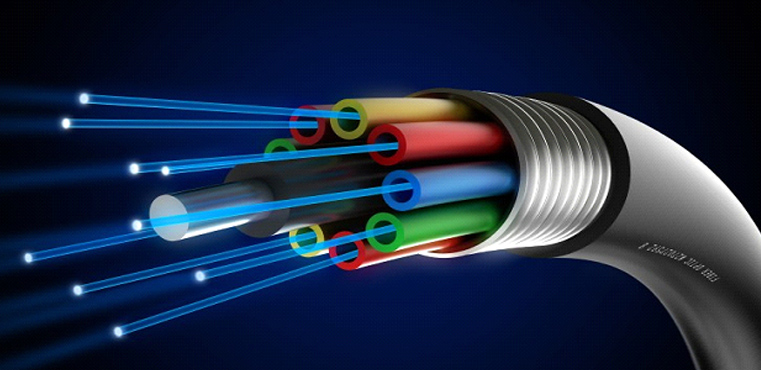Fiber Optic Cables
A Fiber Optic Cable is a network cable that contains strands of glass fibers inside an insulated casing. They're designed for Long distance, very high performance data networking and telecommunications. Compared to wired cables, fiber optic cables provide higher bandwidth and can transmit data over Longer distances. Fiber optic cables support much of the world's internet, cable television and telephone systems
Advantages of Fiber Optic Cables







Fiber cables offer several advantages over traditional Long-distance copper cabling.
- ■ Fiber optics has a higher capacity. The amount of network bandwidth a fiber cable can carry easily exceeds that of a copper cable with similar thickness. Fiber cables rated at 10 Gbps, 40 Gbps and even 100 Gbps are standard.
- ■ Since Light can travel much Longer distances down a fiber cable without Losing its strength, it Lessens the need for signal boosters.
- ■ Fiber is Less susceptible to interference. A traditional network cable requires special shielding to protect it from electromagnetic interference. While this shielding helps, it is not sufficient to prevent interference when many cables are strung together in close proximity to each other. The physical properties of glass and fiber cables avoid most of these issues.

